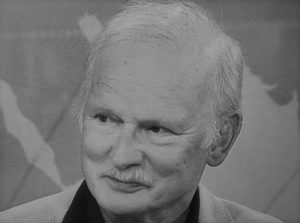VOLUME 17 ISSUE 6 December 2020
 | Robert Ellis Member of the Advisory Board at Vocal Europe in Brussels International Advisor at RIEAS (Research Institute for European and American Studies) in Athens |
PRESIDENT ERDOGAN’S PICNIC
Cyprus is, and always has been, at the mercy of whoever calls the shots in the neigbourhood. As the Arab geographer Al-Muqaddasi noted in 985: “The island of Qubrus is in the power of whichever nation is overlord in these seas.” At present, this is Turkey.
It was a place d’armes for the Crusaders en route to the Holy Land, it protected Venetian trade until conquered by the Ottomans in 1571. When the Venetian governor surrendered against a promise of safe conduct, he was literally stuffed and paraded around town. The British took over in 1878 and it took on strategic importance to protect the Suez Canal.
In the 1950s the Greek Cypriot majority’s demand for independence and enosis (union with Greece) was met by a Turkish Cypriot demand for taksim (partition), which was backed by Turkey.[1] Independence in 1960 led to intercommunal strife and in 1964 the two communities were separated by UNFICYP (United Nations Peacekeeping Force in Cyprus). In 1974 this separation was cemented by Turkey’s occupation of northern Cyprus after a coup by Greek Cypriot extremists who, backed by the Greek junta, intended to declare enosis.
The unilateral declaration of the TRNC (Turkish Republic of Northern Cyprus) in 1983 was the conclusion, and the recent election of Ersin Tatar as president of the TRNC could well lead to the creation of two separate states. In the event, as is likely, that a Turkish Cypriot state is not recognized, this could lead to annexation by Turkey. As the first Cypriot president, Archbishop Makarios, concluded, “It is in the name of enosis that Cyprus has been destroyed.”
By 1968 Makarios had abandoned this dream and opted for the “feasible” rather than the “desirable”, but all the king’s horses and all the king’s men couldn’t put Humpty together again. In 1975 an attempt to achieve a federal solution began in what the present UN Secretary-General António Guterres has called “a horizon of an endless process without result”.[2] The last attempt ended in Crans-Montana in Switzerland in 2017.
The process has been a political graveyard, which has consumed the efforts of several UN Secretaries-General and countless envoys. As James Ker-Lindsay, visiting professor at the London School of Economics, has noted, “There is clearly a sense of frustration and fatigue at the international level about Cyprus.” Further, “No one will want to invest considerable time, effort and even money into pursuing something that clearly has no hope of a successful conclusion. If the Turkish Cypriots elect someone who clearly has little interest in a settlement on realistic terms, then it will obviously affect perceptions”.[3]
In defence of their rump state, the Greek Cypriots themselves bear a share of the blame for this state of affairs. Up against Turkey’s propaganda machine they are defenceless. As Martin Packard, the British naval officer who in 1964 worked tirelessly to secure peace between the two communities, wrote,[4] the Greek Cypriots were given solid reason to complain of a separatist insurrection. But “faced by the more powerful PR mechanisms of Britain and Turkey, the Greek Cypriot authorities failed to impress on the international community a convincing presentation in this light”.
In 2012 I urged on Cypriot foreign minister Erato Kozakou-Marcoullis the adoption of an effective communications strategy, and as Professor Andreas Theophanous wrote in In Depth[5] at the time, “It is of utmost importance that at last Cyprus has a “narrative” and that it regains the moral high ground”. However, our views were ignored.
The following year Peter Droussiotis, the president of the National Federation of Cypriots in the UK, also urged in an interview [6] with the CNA (Cyprus News Agency) a co-ordinated communications strategy but without result. Nevertheless, the Filoxenia Conference Centre was renovated as a prestige project at a cost of €28 million in connection with the Cypriot presidency of the EU in 2012. Meanwhile, the PIO (Press and Information Office) continued to push pamphlets.
Particularly after Cyprus blocked the adoption of sanctions against Belarus at the meeting of EU foreign ministers in September, the ROC (Republic of Cyprus) has been accused of holding the EU hostage. The leading Danish daily Berlingske called on Cyprus to stop playing primitive power games and stated: “The Greek Cypriots are now members of the EU, but do not enjoy much respect in wide circles in the EU”.[7]
The fear is that the Cyprus question can be dismissed by the EU in the same way that the Sudetenland question was dimissed in 1938 by British prime minister Neville Chamberlain as “a quarrel in a faraway country between people of whom we know nothing”.
The ROC has also expected US support but the end of the arms embargo has been limited to non-lethal weapons of defence. A lightening visit by Secretary of State Mike Pompeo resulted in the creation of a joint security training centre with the acronym CYCLOPS, named after the one-eyed monster.[8]
Turkey’s President Erdogan, with one eye on Cyprus’ hydrocarbon resources, has expressed support for a two-state solution and on November 15 had a picnic in the fenced-off town of Varosha.[9] Turkey has long adopted a policy of “Heim ins Reich” towards the Turkish Cypriots in the north. As Germany did with the Sudetenland Gerrnans in the 1930s, Turkey has also found its Konrad Henlein in Ersin Tatar.
Five days before Erdogan’s visit, Turkish Cypriots protested against Ankara’s interference.[10] In the circumstances, both Greek and Turkish Cypriots had better beware of the outcome, as it might not only be the Venetian governor that gets stuffed.
[1] https://www.theguardian.com/commentisfree/2010/mar/03/cyprus-turkey-eu-uk
[2] http://www.uncyprustalks.org/wp-content/uploads/2019/05/2018-10-15-SG-GO-Report-S-2018-919.pdf
[3] https://ahvalnews.com/northern-cyprus/ankara-intervenes-northern-cyprus-election-could-shape-peace-process
[4] https://www.amazon.co.uk/s?k=martin+packard+getting+it+wrong&i=stripbooks&ref=nb_sb_noss
[5] https://cceia.unic.ac.cy/volume-9-issue-1-a-theophanous/
[6] https://cypriotfederation.org.uk/2013/02/federation-president-london-must-send-clear-message-to-ankara-on-eu-course/
[7] https://www.berlingske.dk/ledere/cypern-skal-holde-op-med-primitive-magtspil
[8] https://in-cyprus.philenews.com/cyprus-fm-and-us-secretary-of-state-sign-mou-on-security-issues/
[9] https://chillreport.com/erdogan-has-a-picnic-in-the-ghost-town/
[10] https://www.duvarenglish.com/turkish-cypriots-stage-protest-against-ankaras-interference-in-internal-affairs-news-55003
